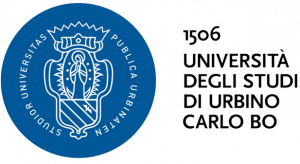Objectives
The project proposal consists in the institution of a non-profit biobank focusing on diseases, mainly rare genetic and oncohaematological pathologies. The biobank will collect and store primary human biomaterial (blood, plasma, cells, etc.) and cell lines from patients (lymphoblastoid cell lines, fibroblasts, etc.).
The biological samples will be associated to epidemiological, clinical and research data through the implementation of instruments for the identification of new diagnostic and therapeutic targets, in order to develop new drugs for precision medicine, new molecular technologies and/or new diagnostic approaches.
The new biobank will be called MARCHEBIOBANK, since it will be the first such institution in the region and it will collect samples from the clinics of the region.
Together with the biobank, an associated research laboratory will be instituted: it will process the samples and provide their first characterization. The laboratory will be equipped with the necessary instruments for the manipulation, storage and quality control of cells and biological samples. Furthermore, within Activity line 1, the three partner universities will provide cellular models and/or animals, instruments, know-how for new procedures and spaces for new instruments that may be acquired during the project, in order to set up a scattered lab for further genomics, transcriptomics, proteomics and metabolomics analyses.
As an added value, the biobank lab will connect the repository of codified biological samples to the IT system of the biobank, as well as to the anonymized electronic health records, if any./p>
In particular, designing a middleware between the biobank and the electronic health records will allow to have a ready-available and always updated clinical picture of the patients, while complying with the requirements of Common Service ELSI (Ethical-Legal-Societal Issues) for material, data and result sharing.
By way of example, the following clinical data included in oncohaematological patients’ health records will be made available:
The biobank will be a non-profit service unit, aimed at collecting, processing, preserving and distributing human biological samples and the related data, for research and diagnosis purposes. It will be officially recognized by the relevant healthcare authorities, it will apply a quality control systems and it will safeguard the rights of the subjects involved.
The biobank will be a regional point of reference, liaising between university research institutions, the regional healthcare authority and voluntary associations working specifically with rare genetic and oncohemathological diseases.
Depositing samples at a biobank means investing in the future and participating in the development of “precision medicine”, which provides an advantage to the whole community through personalized diagnoses and cures. A subject with a deposited sample may benefit from a better diagnosis and be included in pioneering clinical studies on new treatments. Through biobanking it is possible to contribute to the dynamic assembly of a large, quality database, that may be used in medical research to study the causes of diseases, to prevent them and to identify the best treatment and cure options.
MARCHEBIOBANK will be placed in a specifically provided and integrated space in the Azienda Ospedialiera degli Ospedali Riuniti di Ancona Torrette hospital, in order to foster the development of precision medicine in the regional healthcare system.
According to the guidelines of the 2015-2020 National Research Programme, good healthcare should include a continuous search for more and more refined diagnosis and treatment models, above all for life-threatening diseases. Through research on human biological samples it will be possible to: better understand the origin of diseases and/or their heredity, providing instruments to avoid or delay their onset; identify the features of patients’ response to treatments and improve the first diagnosis; identify the features of the patients’ response to treatments and the best existing treatment, based on the individual’s features; understand the molecular aspects of the progression of a disease and, as a consequence, identify new pharmacological targets and early diagnosis instruments.
MARCHEBIOBANK MARCHEBIOBANK will be included in a national network of biobanks (BBMRI – Biobanking and Biomolecular Resources Research Infrastructure) with the main national biobanks, which are also part of a European biobank network through the BBMRI-ERIC (Biobanking And Biomolecular Resources Research Infrastructure and European Research Infrastructure Consortium), a legal instrument to facilitate the institution and work of European research infrastructures.
The inclusion in the BBMRI.it network allows to promote the efficiency and visibility of MARCHEBIOBANK among Italian and European biobanks.
Furthermore, the inclusion in the BBMRI-ERIC directory will provide the public and private sector users with better access to the services supplied to the biobank. In order to attain such objectives, BBMRI.it promotes the harmonization of the standard operating procedures of biobanks, the implementation of a quality management system, the improvement of the research database interoperability, public/private collaborations and a number of activities to foster the economic sustainability of biobanks.
Finally, the participation in activities of the BBMRI groups will allow the creation of a network implementation roadmap and the involvement of the community of rare disease patients, with the aim of organizing together activities and/or events to raise awareness on biobanking within both the patients’ and the medical-scientific communities.
Urbino University



